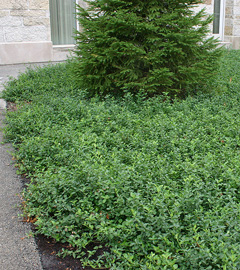
(UNDATED) – Nearly four dozen invasive plants that pose a threat to Indiana’s native plants and animals are now illegal to sell, exchange, transport and give as gifts under a new statewide rule that primarily targets plants sold in the nursery trade.
The rule banning 44 species of invasive plants, including five different species of honeysuckles that eventually choke out surrounding plants, took effect April 18.
Under the Terrestrial Plant Rule, the plants are prohibited from being sold, gifted, exchanged, or even transported within the state, punishable by a $500 fine per incident per day. The plants can still be owned.

“The Terrestrial Plant Rule is the first rule that actually looks out for the health and well being of terrestrial ecosystems,” said Ethan Olson, director of native landscape at Keep Indianapolis Beautiful. “This rule is a pretty big win for folks who care about the environment, and it’s hopefully a jumping-off point.”
Species in the ban also include the Japanese barberry and Wintercreeper.
The Callery pear tree, however, was left off the banned list even though they often break and cause severe damage during a storm; the state decided the economic impact of banning Callery pears would be too large on growers.
Olson said it was not economically responsible to wait to address the issue of Callery pears, but Cliff Sadof, an entomology professor at Purdue University, says the overall Terrestrial Plant Rule is a good start toward addressing a long-standing issue.

“I would like to commend the state for their efforts on passing this legislation,” Sadof said. “It’s much needed. It is a great first step.”



